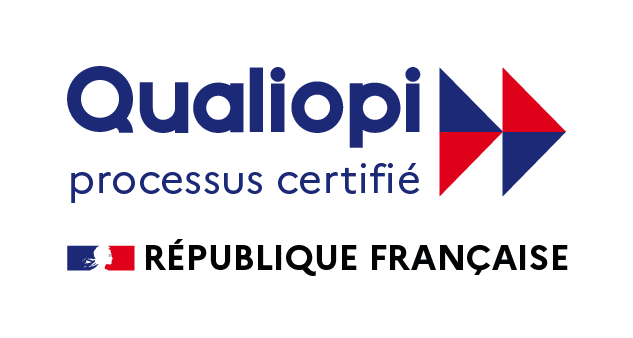Reading time: 5 min
We continue our series on the soft skills of tomorrow according to Open Mind. The 1,500+ cognitive and emotional assessments we have carried out with French executives and managers have enabled us to put into words the cognitive and emotional issues they encounter on a daily basis, and what skills they have or need to develop to deal with them. Here, we talked about emotional regulation as the first soft skill to possess, followed by the ability to be vulnerable. Today, we’re going to reveal the sexy side of self-knowledge.
Instinctively, if you’re asked the question “Do you know yourself?”, you’ll say “Yes, of course, I went on a retreat to reconnect with myself and the trees 2 years ago”, or “Yes, of course, I take a lot of psychotropic drugs that allow me to delve into my unconscious”, or even “Yes, of course, I’ve been under supervision for 15 years”. But do you really know yourself?
Recently, Tasha Eurich and her team studied the self-awareness of over 5,000 people and discovered that although most people claim to know themselves well, only 10-15% do. The worst performers are leaders. The more power leaders have within a company, the more likely they are to overestimate their abilities and skills, including empathy, leadership, performance evaluation and self-reliance.
There are two aspects to self-knowledge. Firstly, there’s an internal aspect: knowing your values, passions, aspirations, the impact you have on others, your reactions (thoughts, feelings, behaviors), your strengths and weaknesses. And secondly, there’s the external aspect of self-knowledge, which we tend to forget: knowing how those around us perceive us in relation to all the elements we’ve just listed. Indeed, having a fair and objective view of ourselves is complicated, as we are often betrayed by our expectations, our hopes, our lack of self-confidence or too little of it. So we need to confront the vision we have of ourselves with the one others have of us.
HOW TO DEVELOP SELF-KNOWLEDGE
Self-knowledge can be rapidly acquired by developing the following behaviors:
- Getting honest, fair feedback from managers, colleagues and staff. To return to our leaders’ lack of self-knowledge, their level in the company makes it more difficult for their colleagues and subordinates to give them honest, constructive feedback, for fear that this might affect their careers.
- When faced with a complex decision or choice to make, develop the ability to seek practical and emotional support from others. This allows you to challenge yourself, to doubt, to position yourself in relation to others and, ultimately, to learn more about yourself.
- You ask WHAT rather than WHY when faced with a difficulty. For example, when faced with a goal you can’t reach, don’t ask yourself “Why can’t I do it?” but rather “What am I trying to do? What’s working? What’s slowing me down? What can I do to change this? If you have a heavy workload, ask yourself “Which tasks take up so much of my mental energy? What do they have in common?”
- Evaluate yourself. Not with pseudo-psychological tests on the Internets, but with real, valid and reliable psychometric tools that assess your cognitive and emotional skills, your personality and your motivations.
EVERYDAY SITUATIONS WHERE SELF-KNOWLEDGE IS AN ASSET
Situation no. 1: Position yourself within a project
Being aware of your weaknesses enables you to anticipate your shortcomings in order to successfully complete a project. It also enables you to mobilize the resources you’ll need in advance, so you’re not caught unprepared or overwhelmed by stress.
Knowing your strengths and knowing how to make the most of them enables you to put yourself forward on tasks where you know you’ll succeed or flourish.
What’s more, the company benefits just as much. It knows what to offer you, doesn’t waste time, and doesn’t waste your time. You’re where you thrive, where you’re good, where you want to be stimulated.
Situation n°2 : Managing a team
Knowing how others perceive you enables you to adjust your behavior. Thanks to this, you (and especially leaders) are more effective, build solid, honest relationships and know how to communicate effectively.
Situation 3: Choosing a training course
Is the training you want to do a real internal motivation, a personal challenge? Or does it meet an external requirement, because it looks good on your CV, or because it’s necessary in the environment in which you work? This will ensure that you don’t set yourself up for failure by embarking on a course that will lose you motivation by the middle of the year.
Situation 4: Choosing a new job
People who are aware of their limits, their expectations and what would stimulate them, know how to create and choose a professional and personal environment that satisfies them, gives them self-confidence and awakens their creativity. This environment promotes well-being, and reduces stress, anxiety and depression.
Ultimately, self-knowledge improves self-esteem, because knowing who you are, what your strengths are and how to use them, promotes empowerment. It’s a skill you’ll never finish developing. It’s a lifelong skill, because we’re constantly evolving, thanks to our interactions with our environment and the events we experience.
Author: Anaïs Roux
SOURCES
What Self-Awareness Really Is (and How to Cultivate It)
Managerial self-awareness in high-performing individuals in organizations.
Self-Regulated Learning: The Interactive Influence of Metacognitive Awareness and Goal-Setting

